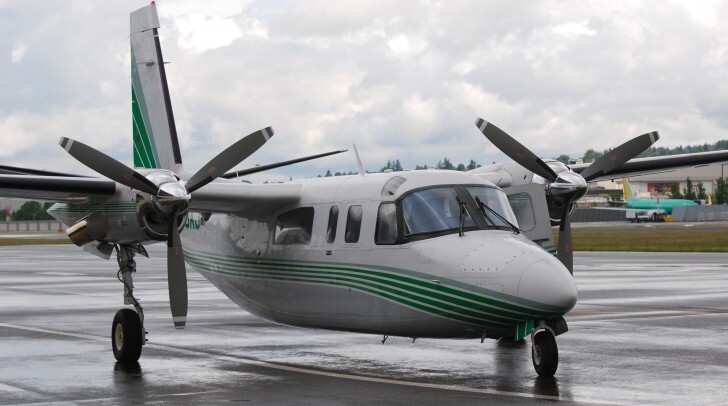First published in Flight Levels Online, Fall 2013 issue

Twin Commander Aircraft and its authorized Service Centers are responding aggressively to accommodate owners and operators affected by a recent airworthiness directive calling for inspection and modification of the aft pressure bulkhead area.
Twin Commander proposed, and the FAA recently approved, a procedure that provides relief for some operators from the strict compliance requirements in AD 2013-09-05, which is based on Service Bulletin (SB) 241.
The revision to SB241 allows operators to perform an inspection of the aft pressure bulkhead area, and if the inspection does not reveal cracking, the operator will be able to resume flying for another 100 flights or 110 flight hours, whichever comes first. If cracking is found, the operator will need to complete the modifications detailed in SB241.
SB241, and the A.D., apply to 690/A/B model Twin Commanders. Later-model Twin Commanders –– 690C/Ds and 695/A/Bs –– have a different wing-to-fuselage design and are not affected by the service bulletin or A.D.
The inspection, which requires that a modified thicker-gauge upper window channel (p/n 310704-3/4 or 310704-5/6) first be installed, can be conducted up to three times (provided no cracking is found) before the full SB241 inspection and mod must be performed.
“This will give operators who are facing a busy flying season a reprieve,” Twin Commander President Matt Isley explained. “Given the number of aircraft affected by the A.D., this will also allow some operators an option to continue flying as they wait for an SB241 inspection slot to open up at a qualified maintenance center.”
To ensure that modifications are performed to the highest of standards, Twin Commander Aircraft developed a factory training course specific to SB241. The training program is administered by Eagle Creek Aviation Services. To date more than 50 technicians have completed the program.
“Though the FAA’s A.D. note does not require it, it is extremely important that operators look only to those maintenance facilities that have received the proper factory training to perform this work,” Isley said. “The modification work is complex and there is potential for damage and costly corrective repairs if the work is performed improperly.”
Some cracking in the aft pressure bulkhead area was first discovered during a routine, scheduled inspection of a 690B about three years ago. Subsequent inspections of other 690As and Bs revealed similar problems. Working closely with the FAA, Twin Commander Aircraft developed SB241, issued in September 2012.
“These cracks developed over time due to wing loads and pressure cycle stresses concentrating in a single area on the aircraft,” Isley commented. “Thus the need for a service bulletin to inspect the affected area, and make necessary modifications so that no further inspections will be required.”
Although issuance of the A.D. last May was not unexpected, the compliance schedule it set out is much more aggressive than that contained in the service bulletin.
The A.D. required affected models with more than 10,000 hours time-in-service to be inspected and modified within just 30 days of the date of issuance of the A.D. (May 29, 2013). The most generous compliance timetable is within 12 months of the date of issuance of the A.D. or 5,000 hours total time-in-service, whichever comes last.
The A.D.’s more aggressive compliance schedule compared to the service bulletin “places an extreme burden on owners of many of the approximately 240 aircraft affected by the A.D. in the U.S. alone, not to mention a similar proportion outside of the country that are impacted,” Isley said. “The revision to the service bulletin gives some operators needed flexibility to perform the SB241 modification.
“Once properly implemented, the modification specified in SB241 will permanently address problems caused by dynamic and cyclic stresses in the aft pressure bulkhead area,” Isley said.
“The safety of the fleet is first and foremost our priority and responsibility,” he noted. “Commander owners and operators have always enjoyed best-in-class safety, performance, and fuel-efficiency, and we at Twin Commander Aircraft, along with our Service Centers, pledge to continue delivering the best legacy aircraft support in the world.”
